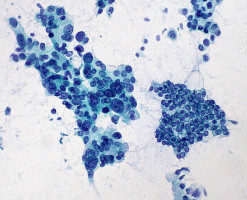
Cancer Research UK scientists have discovered that a vital self-destruct switch in cells is hijacked, making some pancreatic and non small cell lung cancers more aggressive, according to research published in Cancer Cell.
The team, from the Cancer Research UK Centre at the UCL (University College London) Cancer Institute, found that mutations in the KRAS gene interferes with protective self-destruct switches, known as TRAIL receptors, which usually help to kill potentially cancerous cells.
The research, carried out in cancer cells and mice, shows that in cancers with faulty versions of the KRAS gene these TRAIL receptors actually help the cancer cells to grow and spread to new areas in the body.
These KRAS faults occur in 95 per cent of pancreatic cancers and 30 per cent of non small cell lung cancers.
Professor Henning Walczak, lead researcher of the study and scientific director of the Cancer Research UK-UCL Centre, said: “Our research has unveiled a new strategy used by some pancreatic and non small cell lung cancers to overcome our body’s natural defences against cancer. By understanding the faults in these cancers we think we can develop more tailored treatments, which could one day provide urgently-needed options for patients with these types of pancreatic and non small cell lung cancers.”
Each year in Great Britain 32,500 people are diagnosed with non small cell lung cancer and around 8,600 people are diagnosed with pancreatic cancer.
Survival for these cancers has not shown much improvement for 40 years.
Nell Barrie, senior science information manager at Cancer Research UK, said: “Sadly survival from pancreatic and lung cancers remains far too low, partly because these cancers are very difficult to treat once they have spread.
“We urgently need better treatments, so it’s vital to delve deeper into the molecular workings of these cancers to find ways to combat them. This research may one day help us find a way to block cancer spread, which would be a vital step to save more lives.”
Reference
von Karstedt et al. Cancer cell-autonomous TRAIL-R signalling promotes KRAS-driven cancer progression, invasion and metastasis. Cancer Cell.
Source: Cancer Research UK
The World Cancer Declaration recognises that to make major reductions in premature deaths, innovative education and training opportunities for healthcare workers in all disciplines of cancer control need to improve significantly.
ecancer plays a critical part in improving access to education for medical professionals.
Every day we help doctors, nurses, patients and their advocates to further their knowledge and improve the quality of care. Please make a donation to support our ongoing work.
Thank you for your support.